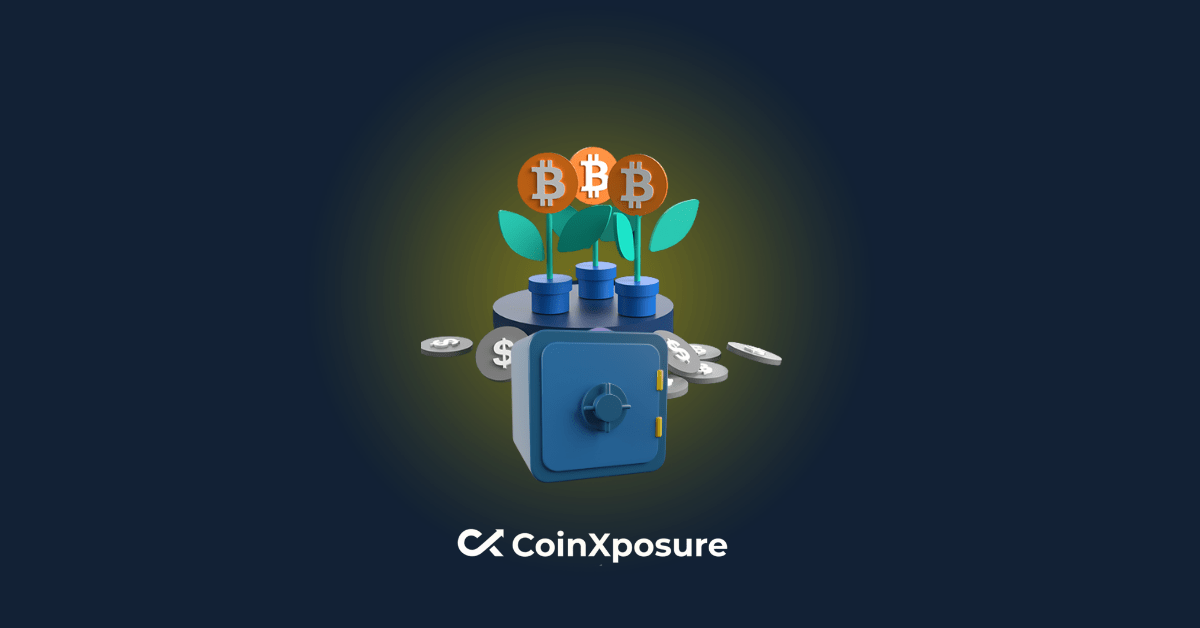
Innovations in Yield Farming – From Vaults to Auto-Compounding
Yield farming, a cornerstone of decentralized finance (DeFi), has undergone remarkable evolution since its inception.
Initially a manual process, yield farming has transformed with vaults and the emergence of auto-compounding mechanisms.
These innovations have not only simplified participation but also maximized returns for users.
This article will delve into the evolution of yield farming, highlighting the transition from manual methods to sophisticated automated strategies, and explore the significance of vaults and auto-compounding in shaping the contemporary DeFi landscape.
Evolution of Yield Farming
The evolution of yield farming reflects the dynamic nature of decentralized finance (DeFi) and its quest for efficiency and innovation.
Initially, yield farming was a manual process where users had to actively manage their assets across various protocols to optimize returns.
This manual approach often required significant time and effort, limiting accessibility to more experienced users.
However, as DeFi matured, the introduction of vaults revolutionized yield farming. Vaults are smart contract-based strategies that automatically allocate users’ funds across multiple DeFi protocols to maximize yield.
They offer a hands-off approach, allowing users to deposit their assets and let the smart contracts handle the complex strategies, rebalancing, and optimization.
Moreover, the emergence of auto-compounding mechanisms further enhanced the efficiency of yield farming.
Auto-compounding automatically reinvests the earned rewards back into the underlying asset, compounding returns exponentially over time.
This automation eliminates the need for users to manually claim and reinvest rewards, significantly improving overall yield and reducing gas fees.
The evolution of yield farming from manual methods to automated vaults and auto-compounding mechanisms has democratized access to DeFi opportunities, making yield generation more accessible, efficient, and sustainable for a broader range of users.
Innovations in Vaults
Innovations in Vaults have played a pivotal role in revolutionizing yield farming within the decentralized finance (DeFi) ecosystem. Here are some key innovations:
- Single Asset Vaults
- Multi-Strategy Vaults
- Risk Mitigation Measures
Single Asset Vaults
Initially, vaults focused on maximizing yield by allocating users’ funds across multiple protocols.
However, single asset vaults have emerged, allowing users to deposit a single asset and earn yield through various strategies within a single protocol. This innovation provides simplicity and reduces complexity for users while still maximizing yield.
Multi-Strategy Vaults
Multi-strategy vaults employ dynamic strategies to optimize yield based on market conditions. These vaults automatically rebalance users’ assets across different yield-generating strategies within a protocol or across multiple protocols.
By diversifying strategies, multi-strategy vaults aim to mitigate risk and maximize returns, offering users a more resilient and efficient way to farm yields.
Risk Mitigation Measures
Vaults have also introduced various risk mitigation measures to protect users’ funds. This includes implementing stop-loss mechanisms, utilizing insurance protocols, and deploying strategies to hedge against market volatility.
These measures enhance the security and stability of vaults, instilling confidence in users and attracting more capital to the platform.
Innovations in vaults have not only simplified yield farming but also enhanced its efficiency, flexibility, and security.
By offering a range of options from single asset to multi-strategy vaults, and integrating risk mitigation measures, vaults continue to play a crucial role in driving the growth and adoption of DeFi yield farming.
Advantages of Auto-Compounding
Auto-compounding brings several advantages to yield farming within the decentralized finance (DeFi) ecosystem:
- Maximizing Yield
- Reducing User Effort
- Compound Effect on Returns
Maximizing Yield
Auto-compounding automatically reinvests earned rewards back into the underlying asset, compounding returns over time.
By continuously reinvesting rewards, users can maximize their yield potential, leading to exponential growth in their investment without the need for manual intervention.
Reducing User Effort
With auto-compounding, users no longer need to manually claim and reinvest their rewards.
This automation eliminates the time-consuming process of monitoring rewards, claiming them from different protocols, and reinvesting them. As a result, users can save time and effort while still optimizing their returns.
Compound Effect on Returns
The compounding effect of auto-compounding can significantly boost overall returns over the long term.
As rewards are reinvested, the base investment grows, leading to larger rewards in subsequent periods. This compounding effect accelerates wealth accumulation and enhances the potential for wealth creation.
Auto-compounding offers a convenient and efficient way for users to maximize their yield farming returns while minimizing the need for active management.
By harnessing the power of compounding, auto-compounding strategies provide a compelling option for investors seeking to optimize their DeFi investment strategies.
Challenges and Risks of Auto-Compounding
While auto-compounding offers numerous advantages, it also comes with several challenges and risks within the decentralized finance (DeFi) landscape:
- Smart Contract Risks
- Impermanent Loss
- Governance and Regulatory Concerns
Smart Contract Risks
Auto-compounding relies on smart contracts to automatically reinvest rewards. Smart contracts are susceptible to bugs, vulnerabilities, and exploits, which could result in loss of funds.
Users must carefully assess the security and audit status of the smart contracts powering auto-compounding platforms to mitigate these risks.
Impermanent Loss
Auto-compounding often involves providing liquidity to automated market maker (AMM) pools. Users may incur impermanent loss, where the value of their assets in the pool diverges from holding them directly.
While impermanent loss is temporary and can be mitigated through careful asset selection and strategy implementation, it remains a potential risk for auto-compounding strategies.
Governance and Regulatory Concerns
DeFi platforms offering auto-compounding services may face governance challenges, such as community governance disputes or protocol changes that impact users’ interests.
Additionally, regulatory uncertainties surrounding DeFi and crypto assets could pose legal risks for users participating in auto-compounding activities, especially in jurisdictions with unclear or restrictive regulations.
Navigating these challenges and risks requires users to conduct thorough due diligence, implement risk management strategies, and stay informed about the latest developments in the DeFi space.
While auto-compounding offers the potential for enhanced yield farming returns, users must be aware of the associated risks and take appropriate measures to protect their investments.
Future Trends and Opportunities of Auto-Compounding
Future trends and opportunities in auto-compounding and yield farming within the decentralized finance (DeFi) ecosystem include:
- Integration with DeFi Ecosystem
- Cross-Chain Yield Farming
- Enhanced Security Measures
- Innovative Yield Farming Strategies
Integration with DeFi Ecosystem
Auto-compounding protocols are likely to become increasingly integrated with other DeFi protocols and services.
This could include integration with lending platforms, decentralized exchanges (DEXs), synthetic asset platforms, and other yield-generating strategies.
Such integration would offer users a seamless and holistic DeFi experience, allowing them to maximize their returns across various protocols and services.
Cross-Chain Yield Farming
As interoperability between blockchain networks improves, there will be opportunities for auto-compounding protocols to expand beyond a single blockchain and offer cross-chain yield farming services.
This would enable users to access yield farming opportunities across multiple blockchains, diversifying their strategies and maximizing their yield potential.
Enhanced Security Measures
With the growing importance of security in DeFi, auto-compounding protocols are expected to implement enhanced security measures to protect users’ funds.
This could include adopting advanced encryption techniques, conducting regular security audits, implementing multi-signature wallets, and integrating insurance protocols to mitigate the risk of smart contract exploits and hacks.
Innovative Yield Farming Strategies
Auto-compounding protocols will continue to innovate and develop new yield farming strategies to optimize returns and mitigate risks.
This could involve the use of machine learning algorithms, predictive analytics, and algorithmic trading strategies to identify and capitalize on lucrative yield farming opportunities in real-time.
The future of auto-compounding and yield farming is promising, with opportunities for innovation, expansion, and adoption across the broader DeFi ecosystem.
As the space continues to evolve, users can expect to see new features, services, and opportunities emerge, offering greater accessibility, efficiency, and profitability in yield farming.
Conclusion
The evolution of auto-compounding and yield farming represents a significant advancement within the decentralized finance (DeFi) ecosystem.
From manual methods to automated strategies, the landscape has transformed to offer users unprecedented opportunities for maximizing returns while minimizing effort and risk.
Auto-compounding has emerged as a powerful tool for investors to optimize their yield farming strategies, harnessing the compounding effect to exponentially grow their investments over time.
Meanwhile, innovations in vaults have provided users with greater flexibility, efficiency, and security in managing their assets across various protocols.
Auto-compounding and yield farming are poised to play a pivotal role in shaping the future of finance, offering users around the world access to innovative financial products and services that were previously unavailable in traditional markets.
As the DeFi space continues to evolve, it is essential for users to remain informed, vigilant, and proactive in navigating the opportunities and risks inherent in this rapidly growing ecosystem.





